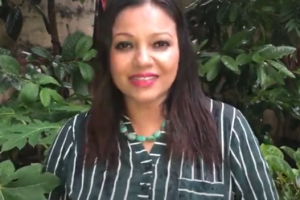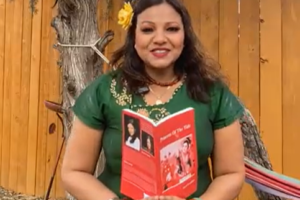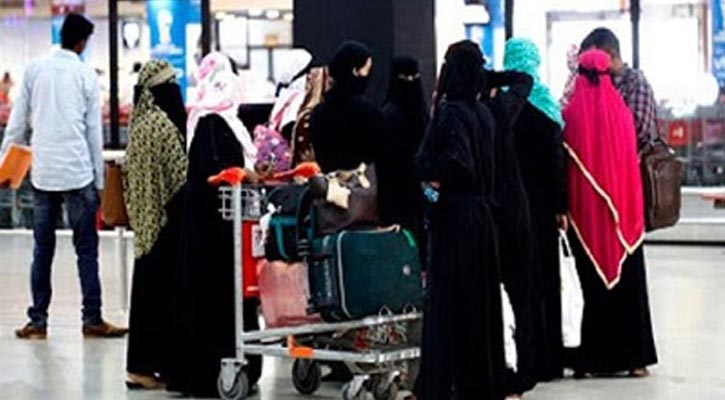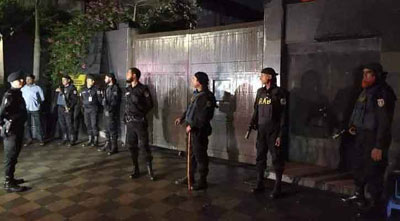Responding to the detention last month of a young opposition journalist, the United States, the European Union, Britain and Canada joined forces Monday to impose further sanctions on the government of President Alexander Lukashenko of Belarus for its abuses of human rights.
“We are united in our deep concern regarding the Lukashenko regime’s continuing attacks on human rights, fundamental freedoms and international law,” the four said in a joint statement.
“We are committed to support the long-suppressed democratic aspirations of the people of Belarus, and we stand together to impose costs on the regime for its blatant disregard of international commitments,” they said.
They called on Lukashenko to release all political prisoners and “enter into a comprehensive and genuine political dialogue” with the democratic opposition and civil society.
EU foreign ministers, meeting in Luxembourg, also voted Monday to hit important parts of the Belarus economy — banking, oil and tobacco and, notably, the potash industry — representing an effort to broaden the punishment by penalising organisations rather than just individuals responsible for repression. Those sectoral sanctions are expected to be confirmed by European heads of state and government who meet later this week.
The coordinated move did not involve identical sanctions, but it was instead intended to have a larger impact on Lukashenko by showing a united front.
“We will approve the package of new sanctions, which is a wider package,” said Josep Borrell Fontelles, the EU’s foreign policy chief. He said 86 individuals and organisations would be targeted with a ban on travel to the EU and asset freezes.
In total, 166 people and 15 entities in Belarus are now under EU sanctions.
“We didn’t use economic sanctions in the beginning because we know they affect everyone, because they affect the economy,” Borrell said. But he also said that Brussels was prepared for a fifth round of sanctions if necessary.
The Europeans imposed previous rounds of sanctions after Lukashenko claimed a reelection victory in an August election widely seen as fraudulent and then crushed a popular uprising. But the latest round was incited by the detention of Roman Protasevich, a young dissident journalist who was central in reporting on and coordinating last year’s protests.
Protasevich, 26, and his girlfriend, Sofia Sapega, 23, were arrested May 23 after the Belarusian government forced a passenger jet flying between Greece and Lithuania, both EU member states, to land in Minsk, claiming that there was a bomb on board.
Since his arrest, Protasevich — visibly bruised, despite thick makeup — has been heard and seen in recordings and at news conferences in which he has praised Lukashenko in a dull voice.
The sanctions list includes judges and prosecutors who have been involved in sentencing protesters; members of parliament and the government; and law enforcement officials and business executives associated with the government.
On Monday morning, the foreign ministers and Svetlana Tikhanovskaya, the Belarus opposition leader, met over breakfast. After that meeting, Foreign Minister Heiko Maas of Germany made clear that the EU would take a broader approach and not only impose sanctions on individuals.
The bloc would now, he said, “get to work on the economic areas that are of particular significance for Belarus and for the regime’s income.”
Maas said the 27 member states were united on the new sanctions.
“We want to make very, very clear to Lukashenko that there is no going back,” he said.
Foreign Minister Jean Asselborn of Luxembourg pushed for sanctions on potash exports, describing them as crucial.
“The key word, I think, is potash,” he said. “We know that Belarus produces very much potash, it is one of the biggest suppliers globally, and I think it would hurt Lukashenko very much if we managed something in this area.”
Exports of potash, important for fertiliser, are a major source of foreign currency for Belarus, and the state firm Belaruskali says it produces 20% of the world’s supply.
The EU statistics agency said the bloc imported $1.5 billion worth of chemicals including potash from Belarus last year, as well as more than $1.2 billion worth of crude oil and related products such as fuel and lubricants.
Sanctions on the financial sector will include bans on new loans, investments by EU investors looking to trade securities or buying short-term bonds in Belarus, and investment services from banks in the bloc. EU export credits will also end.
Austria, which has important banking interests in Belarus through Raiffeisen Bank, had held out against financial sanctions, insisting that they not harm ordinary Belarusians, but finally went along.
“With this agreement the EU is sending a clear and targeted signal against the Belarusian regime’s unbearable acts of repression,” the Austrian Foreign Ministry said in a statement Friday.
Since last year, the EU has imposed three rounds of sanctions on Belarusian individuals, including Lukashenko. After the hijacking, the EU banned Belarusian airlines from its airspace and asked European airlines not to fly over Belarus.
There has been little sign, however, that the sanctions have altered the policies or behaviour of Lukashenko’s government.
Asked Monday morning about what these sanctions are expected to accomplish, Borrell said the new sanctions would increase the pressure for change.
“Sanctions are a way of putting pressure on the government of Belarus,” he said. “And these are going to hurt the economy of Belarus, heavily. What do you expect when you punish something? To change their behaviour.”
Separately, on Monday, European leaders renewed sanctions against Russia in response to the annexation of Crimea and Sevastopol from Ukraine, extending them for a further year.






















